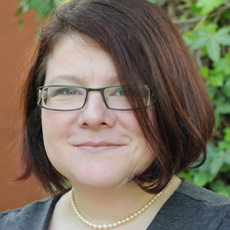City-REDI, University of Birmingham carried out research for a project being led by the Centre for Local Economic Strategy (CLES). The project focusses on local anchor institutions including the City Council, the University of Birmingham, the Office of Police and Crime Commissioner, local hospitals, housing providers and Further Education Colleges.
Local Wealth Building is a new approach to economic development that addresses the failure of the current agenda to generate significant benefit for local economies and people. Born out of a frustration with ‘development as usual’ approaches, Local Wealth Building provides a practical framework for generating and spreading wealth within communities. Over the last decade, people across the UK have taken on local wealth building ideas, applied them in their own communities and witnessed the fruits of their work through the growth of inclusive, living waged jobs, invigorated local supply chains, greater concentrations of local business and increased local spending.
The overall project objectives were:
- Part One - outlines ten years of CLES’ work on Local Wealth Building and makes the case that this approach should become the basis for local economic development, supplanting the prevailing agenda which all too often delivers poor social outcomes.
- Part Two - details Local Wealth Building work taking place in Birmingham, Europe’s largest local authority area. Recent work with six Birmingham based Anchor Institutions has demonstrated the potential for them to play a defining role in shaping the city’s economy and these organisations have committed to collaborating to fulfil this potential.
- Part Three - sets out CLES’ thinking to date on the practical steps for local politicians, public sector organisations and people working in local economic development to grow Local Wealth Building across the UK, translating these ideas and approaches into mainstream local economic development. The outcome of the Summit will help to refine and develop this thinking and translate it into practical action.
City-REDI provided:
- An analysis of the salaries and residence of the staff of the university to look at the levels of economic influence the university has on places
- Mapping of this data against IMD to understand the impact on deprived communities
- Mapping of procurement spend by the university within the region and wider economy
- We continue to represent the University on the delivery of the anchor institution objectives
- Rebecca Riley, Business Development Director, City-REDI
- Dr Tasos Kitsos, Post-doctoral Research Fellow, City-REDI
- Dr Charlotte Hoole, Research Fellow, City-REDI
Return to the City-REDI Homepage Return to the Places Theme Return to the Infrastructure Theme
Funder/client: Partnered with CLES and funded by Barrow Cadbury
Timescale: Ongoing
CONTACT
 Project lead: Rebecca Riley
Project lead: Rebecca Riley
Tel: 0121 414 4366
Email: R.L.Riley@bham.ac.uk